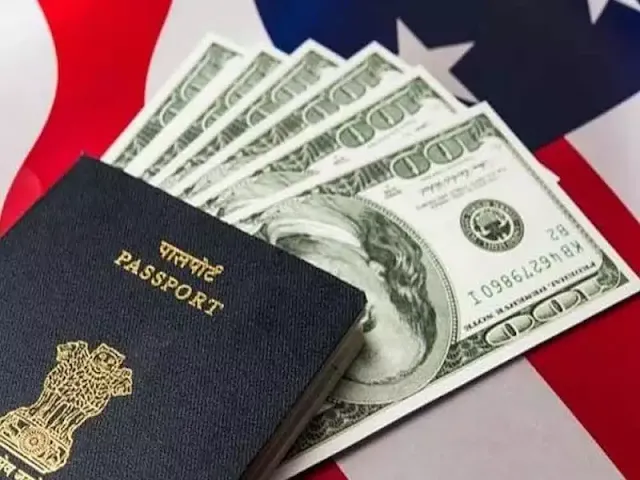H-1B Visa Fees Soar: Impact on Workers, Businesses, and the US Economy
The US government recently announced a significant increase in H-1B visa fees, sparking heated debate and raising concerns about its impact on skilled workers, businesses, and the overall economy. This article delves into the details of the fee hike, explores its potential consequences, and examines the ongoing conversation surrounding this controversial policy change.
The Hike:
Effective April 1st, 2024, the US Citizenship and Immigration Services (USCIS) implemented a substantial increase in H-1B visa fees:
- Registration fee: From $10 to $215 (2,050% increase)
- Petition fee: From $460 to $780 (70% increase)
This decision stemmed from the USCIS's claim of needing additional revenue to cover operational costs.
Potential Consequences:
The fee hike raises several concerns:
- Cost burden on businesses: For companies relying on H-1B workers, the increased fees translate to higher recruitment costs, potentially discouraging them from sponsoring foreign talent.
- Impact on skilled worker pool: Higher fees could deter skilled professionals from applying for H-1B visas, limiting access to talent crucial for specific industries like tech and healthcare.
- Reduced US competitiveness: By making skilled foreign workers less accessible, the US risks falling behind global competitors in attracting talent and fostering innovation.
- Potential job losses: Businesses facing higher costs might resort to layoffs or opt for alternatives like outsourcing, impacting American jobs.
Industry Reactions:
The fee hike has drawn criticism from various stakeholders:
- Tech companies: Industry leaders warn of potential talent shortages and reduced US competitiveness in critical sectors.
- Immigration advocacy groups: They raise concerns about negative impacts on skilled workers and families.
- US businesses: Some express concerns about increased costs and potential job losses.
Supporters of the fee hike argue that it:
- Helps USCIS recover operational costs.
- Encourages businesses to focus on hiring American workers first.
- Levels the playing field for US companies competing with foreign-owned firms.
The Road Ahead:
The long-term consequences of the fee hike remain uncertain. However, it has ignited a crucial conversation about balancing the need for skilled talent with protecting American jobs and ensuring fair access to opportunities. Potential developments include:
- Legal challenges: Lawsuits challenging the fee hike as discriminatory or exceeding USCIS's legal authority are possible.
- Congressional intervention: Legislative efforts to modify or reverse the fee hike might emerge.
- Alternative solutions: Discussions on alternative approaches to address USCIS's funding needs without impacting H-1B visas could gain traction.
Conclusion:
The H-1B visa fee hike is a complex issue with far-reaching implications. While its supporters present arguments favoring American workers and USCIS finances, the potential negative impacts on the economy, competitiveness, and access to skilled talent raise serious concerns. As the debate unfolds, it's crucial to consider all sides, weigh potential consequences, and explore alternative solutions for a balanced approach to immigration and talent acquisition that benefits both the US economy and its workforce.









No comments